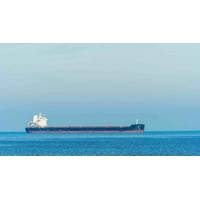Pipeline Plan to Bring Western Gas to Balkans Closer
Slovak pipeline operator Eustream expects to sign a memorandum of understanding in the next two weeks with counterparts in Romania and Bulgaria on a proposed gas pipeline aimed at reducing Balkan reliance on Russia, its chief said on Wednesday.
The project, its backers say, would ensure countries including Bulgaria and Serbia can receive gas even if Russian supplies via Ukraine are disrupted.
The Slovak operator has proposed gas be piped from western European hubs via Slovakia's existing system into Ukraine and then into Romania and on to Bulgaria.
"We expect to sign a memorandum of understanding with both Romanians and Bulgarians within, let's say two weeks," Eustream Chairman Tomas Marecek told Reuters on the sidelines of a European gas conference in Vienna.
"Eustream is working as a major promoter of the project but we still discuss with many counterparties who could theoretically participate as shareholders."
Russia has halted gas flows to Ukraine three times in the past decade, disruptions that have hit especially hard in the Balkans where many countries rely almost wholly on Russian gas through a single transit route.
The Slovak pipeline operator is considering a joint venture with a number of foreign companies to build the project with an estimated price tag of between 750 million euros ($850.58 million) to 1.2 billion euros, depending on the final route Marecek said.
"We plan to discuss it with the big German names," he said. "We will definitely discuss it with OMV and have already discussed it with Gaz de France."
The proposed 570-kilometre project would have a potential capacity of up to 20 billion cubic metres (bcm) per year and the ability to transport gas either from Russia to the Balkans, or from the West to the Balkans.
It would connect Eustream's existing system -- which has a capacity of more than 80 bcm -- to Ukraine's under-utilised Soyuz pipeline leading to the Romanian border.
Aside from Russian gas, the pipeline could tap supplies from Austria's gas hub or from alternative sources such as the Caspian Sea and the Mediterranean, Marecek added.
"If the pipeline is built the whole of Europe and especially this region can become less dependent on Russia," he said.
"Especially in terms of diversification of transit routes and in terms of diversification of the sources as well."
By Shadia Nasralla





